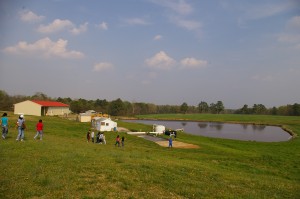Climate Change is real. It’s happening now. And the best available data points to us as the cause.
That the foundational science is settled is a point of unending frustration to scientists, science writers, and policy advocates who face continuous partisan push back, from whitewashing government websites to threatening scientists with legal repercussions for reporting the data. During my International Marine Conservation Congress keynote last year, I argued that Climate Change denial is not a science literacy problem, but rather a product of increasing political bifurcation. Political ideology is a much stronger predictor of Climate Change understanding than science literacy.
The term “Climate Change” is now loaded with so much political baggage that it becomes almost impossible to hold a discussion across political lines. In stakeholder interviews, people generally understand and acknowledge the impacts of climate change on local and regional scales, as long as you don’t call it “Climate Change”. This has been my experience working in rural coastal communities, which tend to be strongly conservative and intimately connected to the changing ocean.
Which is why, when I talk about Climate Change, I don’t talk about science.
Read More “When I talk about Climate Change, I don’t talk about science.” »

